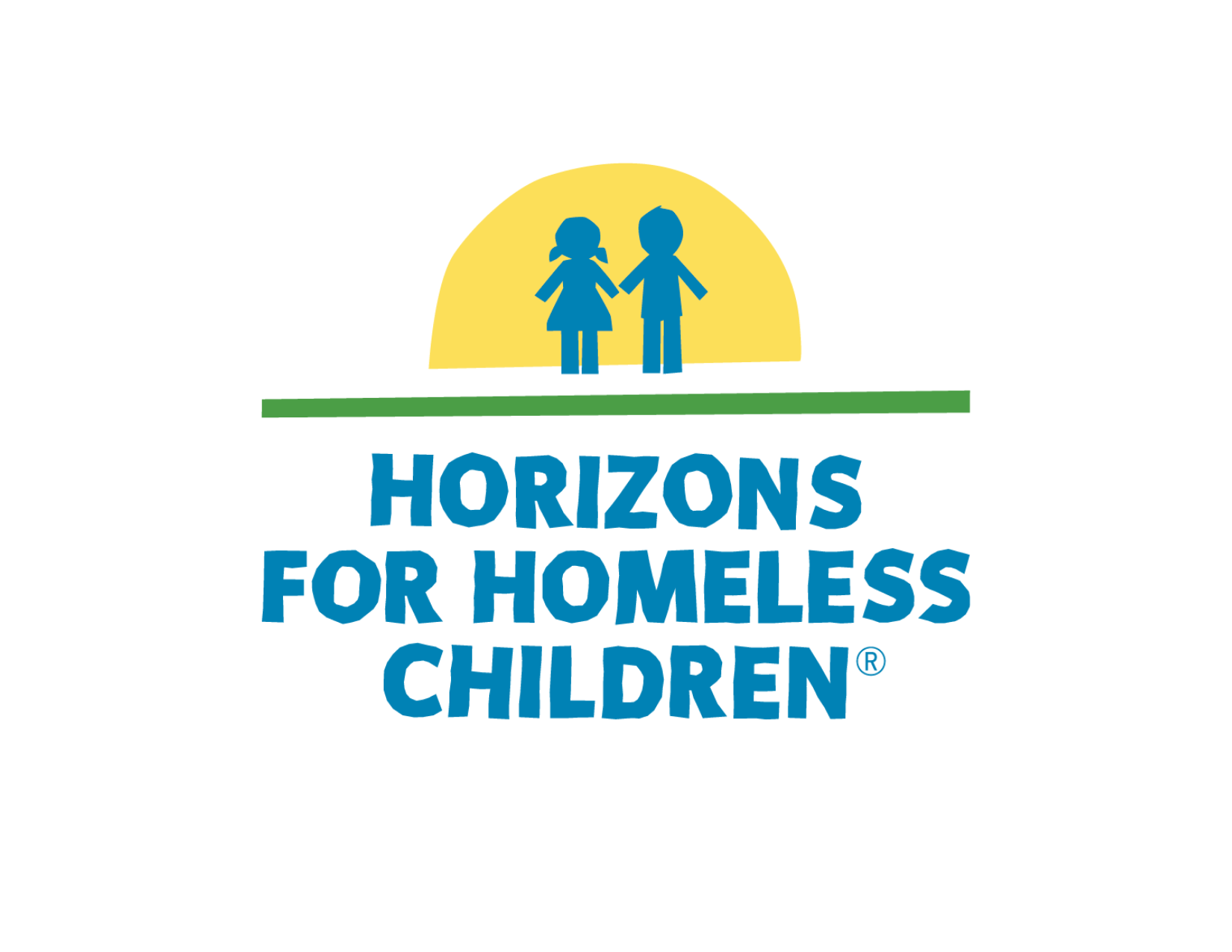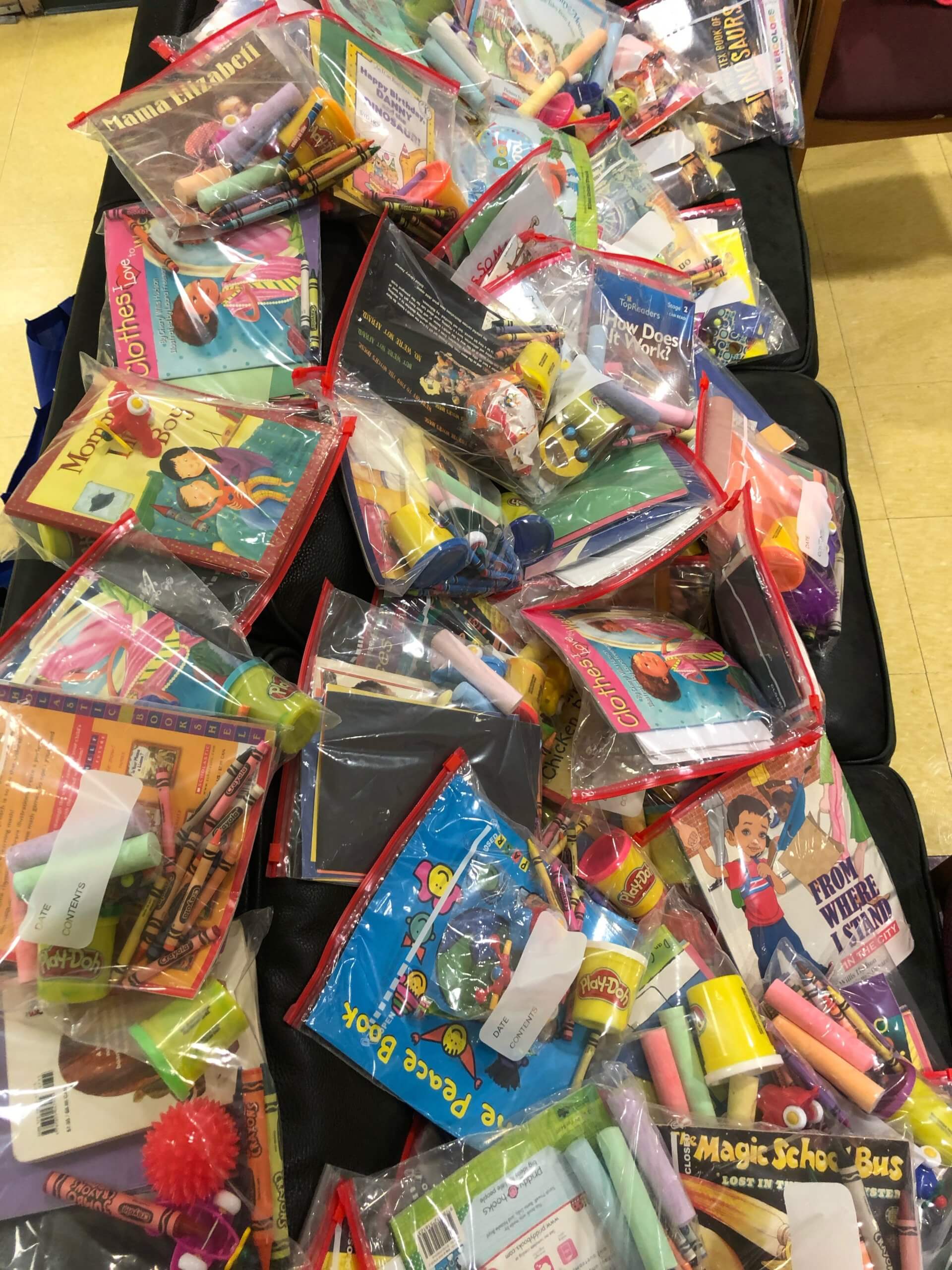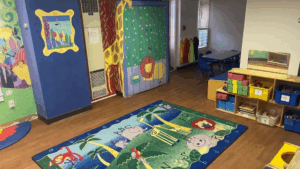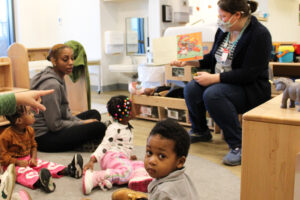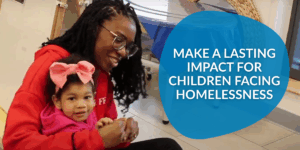Playspace and the Pandemic: A Play Focused Response to the COVID-19 Crisis
“Children need the freedom and time to play. Play is not a luxury. Play is a necessity.” –
Kay Redfield Jamison, an American professor of psychiatry
After the COVID-19 crisis temporarily closed Playspaces, the Horizons team recognized that providing children in shelter with opportunities for play was still very much needed and was now complicated by the need to quarantine. The team worked quickly to re-imagine how they could support children without the in-person experience that was built into the Playspace model.
Horizons’ Playspace team assessed needs and capabilities and developed a plan including innovative ways to provide supplies, activities, connection and information.
Supplies
Families living in shelter live in small spaces and typically did not have access to books, art supplies, and toys, all things necessary to keep children active and happy in quarantine. Playspace kits were created, bags filled with toys, art supplies, and books. The bags were delivered to shelters around the state so that families would have some of the same resources their child would typically access in Playspace.
Activities
In addition to providing families with physical supplies, the team wanted parents to be able to replicate some of the joy that comes from a Playspace shift. The team got to work creating Virtual Playspace shifts, which parents could easily access and do with their children in their shelter rooms on their own time. Each session is available on Youtube, and is a video directed at children that allows parents to engage in educational activities and play with their children.
“Each week we try to bring the spirit of the Playspace to families with games, songs, crafts, healing play and more. It can never replace the impact our PALs have on the children, but we hope it can bring them some joy while we have to be physically apart,” said Meghan Schafer, Playspace Program Director of the Southeast region. You can check out the full library of Virtual Playspace shifts here.
Connection
Another important element of the plan was figuring out how to help foster meaningful connections between PALs and children, albeit in a virtual capacity. The team came up with the idea to hold Playspace shifts over Zoom. Aptly named, Playspace in Your Space, shifts are held at varying times throughout the week, with 3 to 4 PALs joining each shift from their homes. Playspace in Your Space, works to mirror an in-person shift. There is a game component (bingo, heads up, a scavenger hunt,) a movement activity (dancing, freeze dance, Simon says) and a story time. Shifts typically last 40 minutes, and supplies are delivered to shelter programs beforehand, so that kids can participate in the activity in real time.
“Playspace in Your Space, helps our PALs stay connected to the organization and connected to the mission. Although this cannot replace the magic of in-person shifts, it is a way to keep kids and volunteers engaged and highlights the resiliency, both of the kids and our volunteers, “ said Lynne Gaines, Playspace Program Director in Greater Boston.
The connection hasn’t stopped there. The outpouring of
support from Horizons’ volunteers, or PALs (Playspace Activity Leaders), has been monumental. Homemade cards began rolling into shelters around the state.
The cards were all homemade with detailed and personalized messages and drawings from PALs, encouraging children to stay strong and safe.
“The cards proved what we already knew; our PALs were in this with us. We had their support and the children we serve had their support. It was really a testament to the strength of this organization and the dedication of its volunteers,” said Steve Croke, Playspace Program Director of the Northeast Region.
Additionally, the Playspace team launched the Playspace Pen PAL program. This initiative focused on creating postcards that PALs could use as templates to write messages to the children they volunteer with. Alternatively, children have access to the postcards in shelter and can send messages to their PALs.
Information
“With how rapidly information surrounding the COVID-19 crisis was changing, we made it a priority to work with shelters to help them communicate the influx of tips and safety recommendations,” said Joanna Berube, Playspace Program Director of the Western region.
The COVID-19 crisis has made all of us rethink ‘how’ we work. But our ‘why’ remains the same – the dedication of PALs, and strong collaborative relationships with shelter staff has allowed Horizons to maintain its commitment to families who need support now more than ever.
This piece was written by Rachel San Giacomo, a regular contributor to Horizons’ blog.
